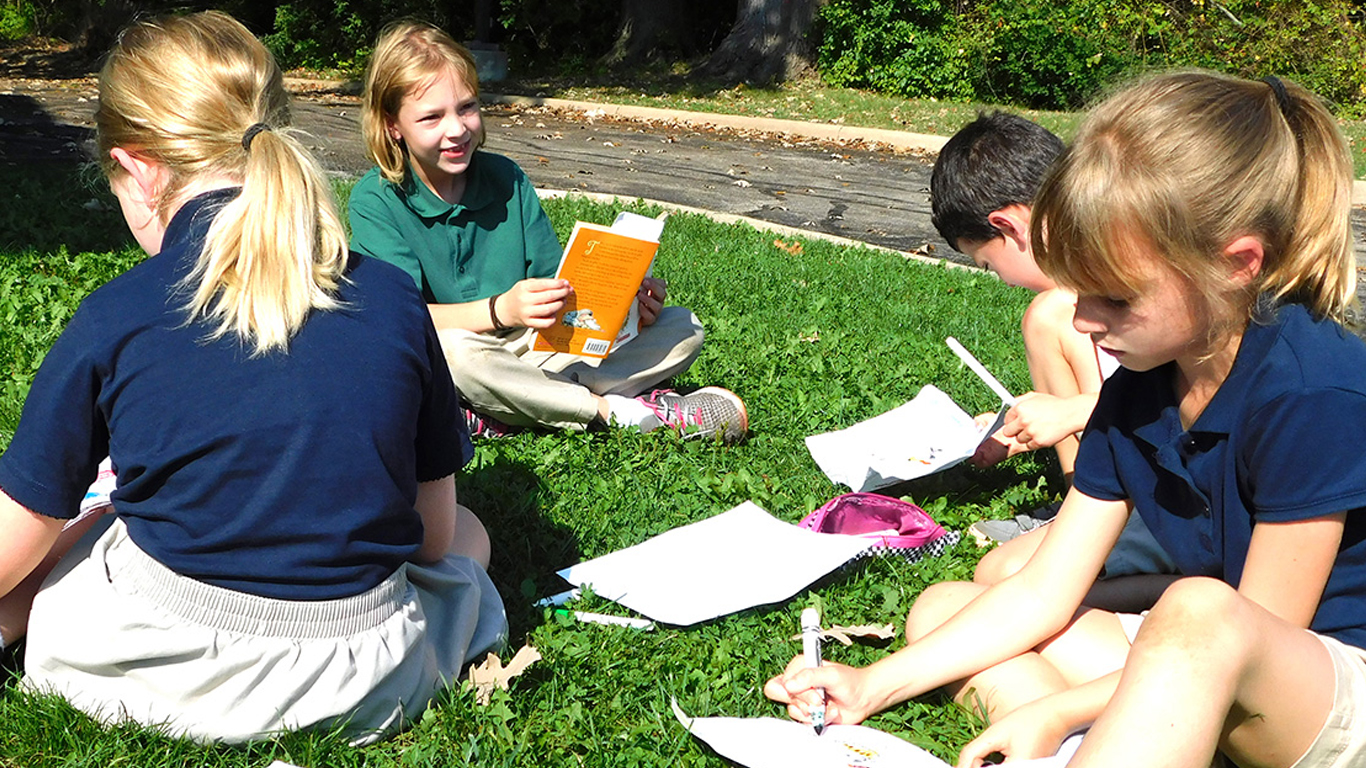“WCA? Oh, your kids go to a Christian school,” a friend observed.
“My kids go to a classical Christian school.”
“What does that mean; they take Latin or something?” she quipped.
“Well, yes, they do, but that’s only one facet of this incredible education! Let me explain!”
Choosing a Christian school to come alongside parents to educate their children is always a good decision. Choosing a classical and Christian school is an even better one. The classic methodology is the ideal way for children to learn. It’s true that students begin to study Latin in the third grade and take logic classes in the seventh and eighth grades, but the classical model is a way of teaching and learning.
Simply, the classical model is made up of the Trivium. The Trivium advances students through three stages of education. The first stage is the grammar stage. The grammar or fundamentals of each subject is taught using unique methods. Learners in grades K-6th enjoy songs, chants, rhymes and rhythms used to teach them abundant amounts of facts. Students are able to retain an incredible knowledge base at this early stage of development and are then prepared to learn to think critically. Advancing from the grammar stage into the logic stage completes the second part of the Trivium. Middle school students in grades 7-9 are naturally argumentative. Classical educators joke that if young middle school students are going to argue, we should teach them to argue well. In the logic stage children learn to critically and respectfully question the world around them and to hold it up through the lens of truth, the Bible. Logic instruction is given and students are able to apply the reasoning of logic in essays and beginning debate.
Around sophomore year in high school, students advance into the rhetoric stage of the Trivium. Rhetoric is the art of speaking and writing well; therefore, during this phase of a classical students’ education, the learner communicates arguments for consideration in both writing and oral presentation. It is the third stage of the Trivium where students demonstrate an attitude of life-long learning and a confidence through Christ in the education they have been given.
Although a classical Christian education is many faceted and academically rich, this straightforward understanding of the Trivium is a good place to start. Methodologies of teaching and learning aptly suited for each stage of a child’s development allow students to become life-long learners. The completion of the Trivium marks the goal of classical Christian schools, which is to provide the best possible education to help all children reach their God-given potential. Deciding to educate your child in a Christian school is a good decision; choosing a classical Christian school is an even better one.







